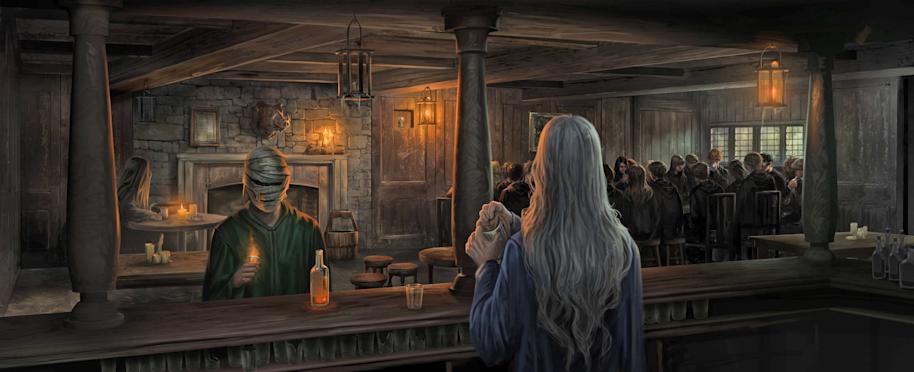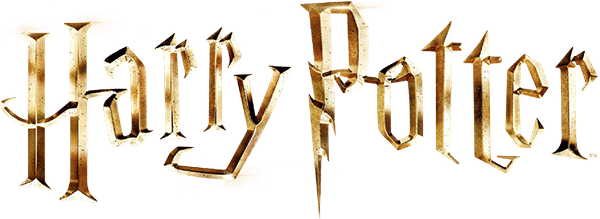
If this is your first time reading the series you might want to check back later, as spoilers abound…
With her Quick-Quotes Quill and unorthodox research methods, Rita Skeeter’s not known for sensitivity, but The Life and Lies of Albus Dumbledore takes rumour-mongering to new levels. And while it’s as full of insults and insinuation as it is of truth, the controversies it covers – from Dumbledore’s relationship with Grindelwald to the death of Ariana – raise as many doubts as they quash.
So here, in no particular order, are some of the big Dumbledore questions that remain unanswered. Even by Rita Skeeter.
When did he choose to become a teacher?
Towards the end of Deathly Hallows, Dumbledore reveals he refused the post of Minister for Magic on several occasions. Power, he explains, was his weakness and temptation. But, of the many other careers open to him, why exactly teaching? His research into the use of dragon’s blood and his explorations into alchemy are noted many times, and Elphias Doge’s obituary reveals Dumbledore left school with a number of awards and research papers to his name. He didn’t pursue any of those, though. He elected to become a teacher. What inspired that career choice?

When did he encounter Fawkes?
Fawkes is so closely associated with Dumbledore, he leaves Hogwarts as soon as the funeral is over. He wasn’t a feature of Dumbledore’s early life, so when did the two of them meet, and what’s the reason for their strong bond? Also, what happened to Fawkes after Hogwarts? We like to think of him flying around, keeping an eye on things, but it would be nice to know.
What happened in the duel with Grindelwald?
Dumbledore tells Harry he left it far too long to confront Grindelwald – five years, according to Rita – because he was scared about what Grindelwald might reveal in relation to Ariana’s death. We’d love to know what happened before Dumbledore defeated him. Did Grindelwald reveal anything? Why exactly was Grindelwald so scared of Dumbledore, anyway, and how did Dumbledore manage to win when Grindelwald had the Elder Wand? So very many questions.
What was his relationship with Aberforth?
We know the teenage Dumbledore resented Aberforth’s home-truths, we know they brawled at Ariana’s graveside, we know Aberforth was hauled before the Ministry of Magic for something to do with goats (and no, we're not asking about that) and we know, for at least the few years Harry was at Hogwarts, that Aberforth was custodian of a pub in the wizarding village next to his brother’s school. What we don’t know is what their relationship as adults was like. Did Aberforth know his brother was living on borrowed time after trying on Marvolo Gaunt’s ring? Aberforth said Dumbledore told him about the mirror he used to keep an eye on Harry; when did that conversation happen?

Did he truly believe in the Hallows until he died?
The Hallows certainly caught Dumbledore’s imagination as a bored, brilliant young man in Godric’s Hollow. His curiosity about Harry’s father’s Invisibility Cloak and his taming of the Elder Wand indicates he retained his beliefs into adult life. But did he really believe mastering all three would enable a person to conquer death? And what did he think Grindelwald intended to do with them?
When did he realise the truth about Voldemort?
Dumbledore was the first wizard to visit Voldemort, then Tom Riddle, at his Muggle orphanage. He knew even then this was a wizard to watch – and he did, closely. When Riddle applied for the Defence Against the Dark Arts post for the second time, Dumbledore turned him down. Did he know, then, what Voldemort was doing? How did he discover the Horcruxes? And what exactly was Dumbledore’s role in the First Wizarding War?
When did he retrieve the Golden Snitch he gave Harry?
Harry’s first performance on the Quidditch pitch involved him nearly swallowing a Golden Snitch that Dumbledore later gifted Harry in his will. Now, given Harry was a first-year at the time, that’s quite some forward-planning. What did Dumbledore know then? Also, how did he go about it? We just can’t imagine Dumbledore sneaking into the Quidditch equipment cupboard after the game and nicking it.

How did he anticipate everyone’s behaviour?
Dumbledore knew Ron would leave – and come back. He knew Hermione’s cool logic would temper Harry’s hot-headedness. He knew Wormtail had some small sliver of regret. And he gambled on Harry time and time again. From giving him just enough information to retrieve the Philosopher’s Stone to sharing only those things about Harry’s destiny he deemed relevant, Dumbledore did, on a few occasions, get it wrong. But for the most part he predicted Harry’s actions correctly – just as he did with Voldemort, Malfoy, Snape, Slughorn and many others.
How did he know so much about everyone? Did he just understand human nature, was it Legilimency, or something else altogether?
Seeing as we'll be visiting Dumbledore's past in the upcoming Fantastic Beasts films - maybe we'll uncover a few mysteries about the great man soon.
Want to join the Wizarding World Book Club? Sign up here to read along, gain awards and discover new content every week. You can also join the conversation over on Twitter.



